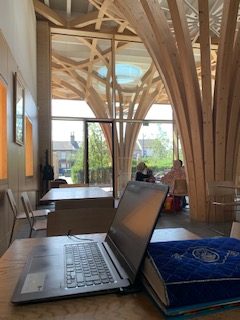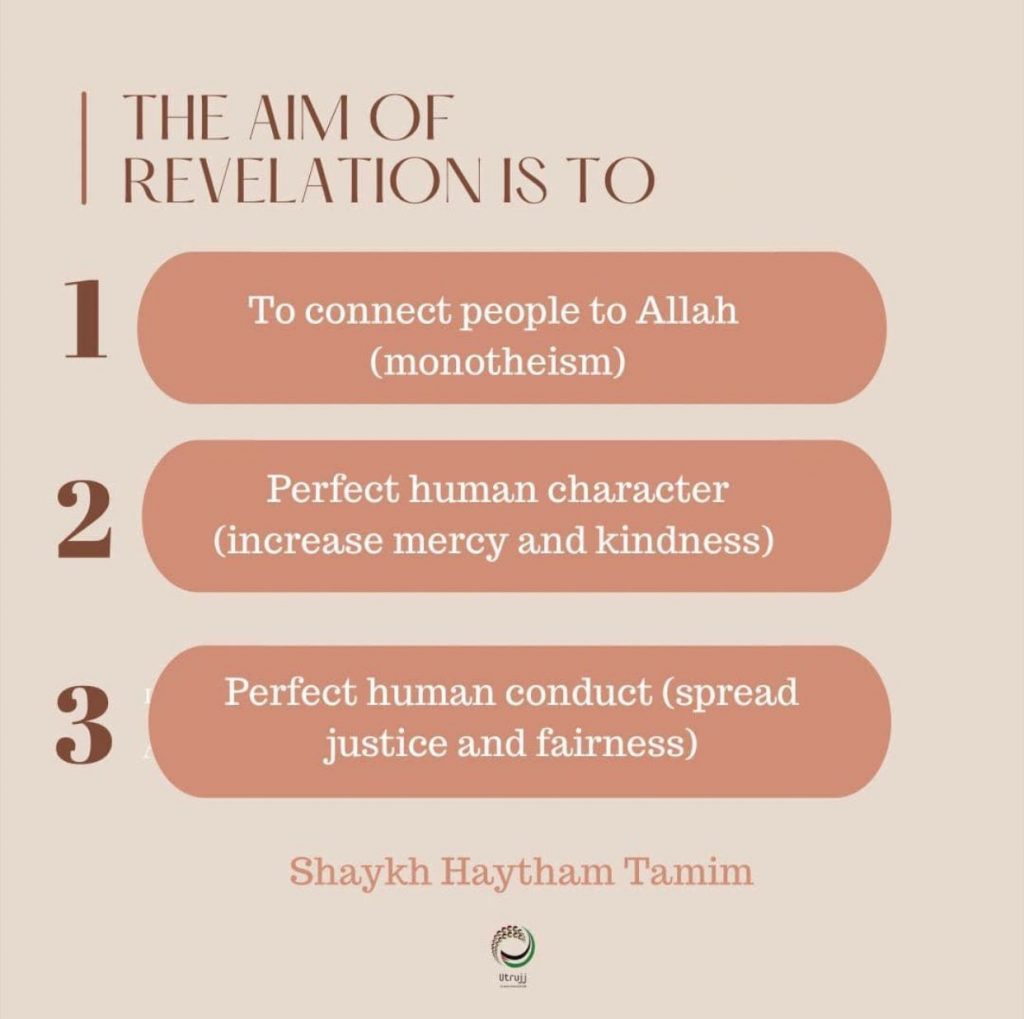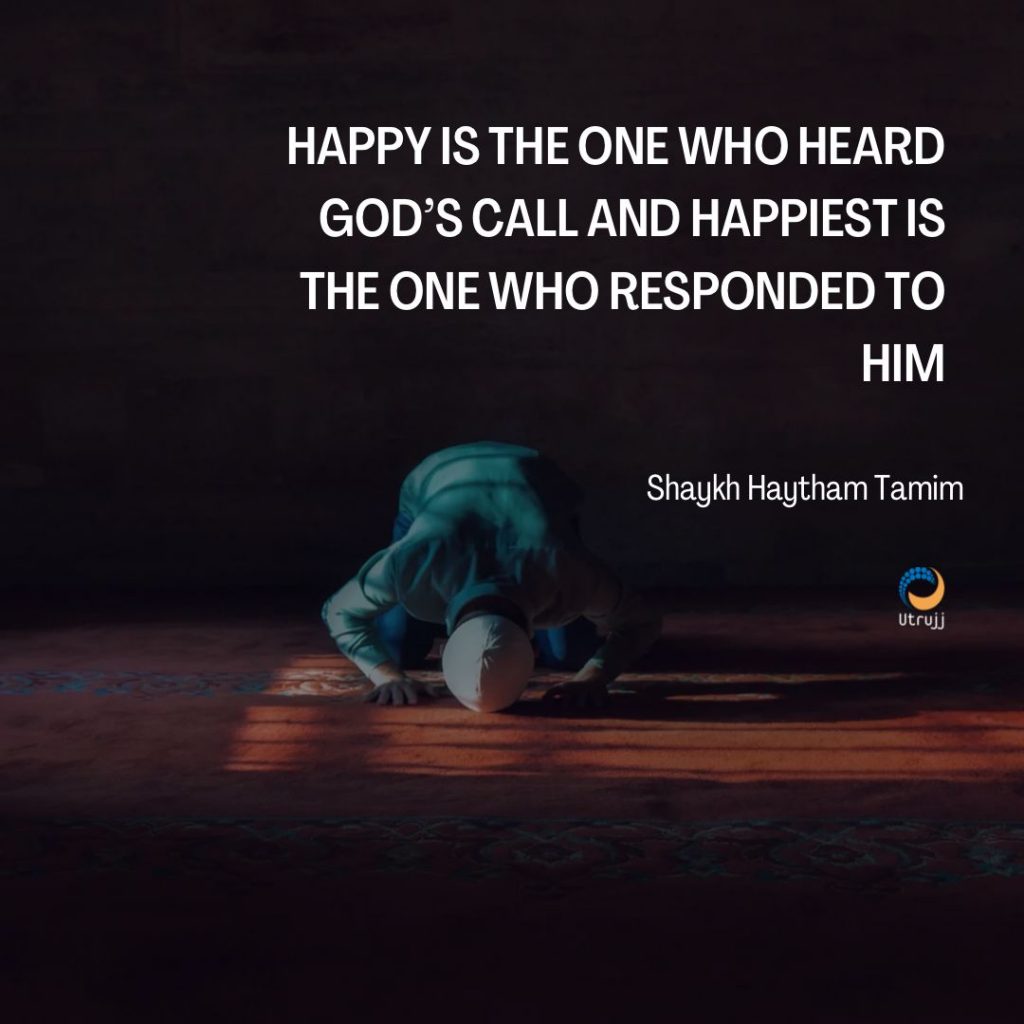What Islam can offer us today

What can Islam offer us today?
Connect people to God
You could talk for volumes on this question, but let me summarise. Firstly, we must understand that Islam is a divine revelation, so the first thing the revelation does is to connect people with God.
Continuity of the divine message since time began
From the time of Adam, Noah, Abraham, Moses, Jesus, til Muhammad (peace be on them all), the divine message has been sent down to mankind. The message has always been the same, as mankind has remained the same. Despite any advances we have made in the world, at the end of the day, human beings are still the same.
Every community and individual faces their own challenges – experiences, the tugs of their desires and is subject to whims. We all have souls and bodies and no matter what happens around us we experience the tensions between these two, pulling us in different directions.
The soul is divine, from God, and the body is the carrier.
Islam is about connecting the individual as well as connecting communities to God.
The main teachings of Islam can be broken down into subcategories which give us more details on monotheism and how to worship God by praying, fasting and giving charity.

Perfecting all dimensions of the human being
Apart from connecting us to God, Islam was sent to show us how to become a better version of ourselves. It is the upgrade to our system. We are born with raw potential which is shaped by the environment, so Islam gives us the blueprint for excelling as a human being and perfecting human character.
Islam therefore teaches the individual what to do, as well as what not to do, and how to improve what you are already doing. If your behaviour and actions are good you are rewarded, if not you need to replace those actions or those particular behaviours with something better.
Islam promotes goodness in every sphere, and does not condone evil. Everything connected to goodness is promoted by Islam, regardless whether it is mentioned in a specific verse or not, because it supported by the general guidance of the revelation. Similarly, anything practiced by some Muslims which is not supported or promoted by Islam, does not become Islamic because of their mistaken understanding or deliberate wrong practices.
The erroneous actions of some Muslims is not a reflection of Islam, and is not given legitimacy through their practice.
Establishing principles
In addition to showing us how to perfect human character, Islam sets out values and principles which should inform our personal interactions as well as our institutions and government. Centuries before the UK government came up with the five British values in 2014, or France chose liberty, equality and fraternity as their motto, Islam set out core values such as truthfulness, trustworthiness, mercy and justice which should underpin relationships, society and transactions.
Without doubt we can see the importance of integrity in the prevailing toxic political environment, which is dominated by lies, sleaze and corruption. It is so sad to see what levels some politicians can stoop to.
In Islam, there is huge emphasis on being a person of principles, which many of our politicians could learn from, as they are meant to be role models, but currently are models of how not to be.
The manual which gives you direction in life
Islam gives us the manual for how to live our lives. It is up to us to use it. If you decide you don’t need it, no one will force you to use it, but you will stumble through the dark and take wrong turns without it. The best thing is therefore to familiarise yourself with the map as it will guide you through the decisions you make in your life – big and small.
Plenty of people lack direction. That is why we need revelation to helps us understand our purpose in life. There is more to our existence than eating and drinking, having fun, making money and passing time. For those who are searching for meaning, the answer is not 42.
The answers to deep philosophical questions
Philosophers have sought throughout time to understand and answer the questions of existence:
Who you are?
Where did you come from?
Why you are here? What is your purpose?
What happens when you die?
The revelation gives us simple, complete and logical answers to these big philosophical questions. We all need to understand our purpose in life. Is it to work a 9 to 5 behind a screen? Plenty of people are bored, with no purpose in life. Islam gives you the answer – you are a servant of God. Where are you going? You’re going to the Hereafter. This life is just a bridge to the other side.
Islam tells us the meaning of life – answering why you were created, why you are here and where you are going.
Perfection
When someone finishes a book, they write, “The end” and that shows that the book is finished. At the end of the revelation, in Surat al Ma’ida, Fid said “This day I have perfected your religion for you”. [The Quran 5:3]
It means that Islam is perfection. Nothing can match it because it is divine, from God, who is the Creator. He knows the ins and outs of everything in the universe. We were recently excited by the new images from the James Webb Space Telescope, which shows us how magnificent and perfect the universe that God created is. The more you know the more you can appreciate God.
Nothing you can buy can fill the void in your life, but you can find peace and tranquillity by submitting to God and His commands and understanding your purpose and how to live.
In the opening 7 verses of the Quran which are repeated at least 17 times a day in the Islamic prayer the believer says, “Guide us to the straight path.” We ask for direction, because without direction, we’re lost. Islam shows us how to find God, to whom we belong, submit to Him, and gain guidance.
A complete religion
God is saying that the revelation is complete and perfect and applicable for any time and any place, regardless what century you are living in, the message of Islam has the flexibility to suit any situation.
Perfection of the religion also means that it caters to the soul and body, the mind and the heart.
Islam informs us on five levels – as an individual, family, community, country, and universe.
Islam offers clarity and vision and direction
On an individual level we have our connection to God, and how to pray, what to do, what not to do. Individuals belong to a family, which belong to a community and so on. As a community, it shows us how to create justice, fairness and the best practice in the economy, politics, judicial system and law.
Islam teaches you to create a balance between your duties to your Creator, to yourself, to your family, and to your work, etc. We have a set of duties and also a set of rights – your families have rights, your bodies have rights and so on. If we live with this in mind we will have a balanced, disciplined existence.
The Quran talks about those who believe AND do good deeds, as these two balance between our inward spirituality with outward actions.
Discipline and structure
Discipline is established by adhering to the five daily prayers which become the believers’ clock. Like mealtimes they provide nourishment for he soul at regular intervals. They force you to create structure in your life – beginning with the first prayer for which you must wake up at daybreak for the first prayer.
Those who lack discipline in life will experience failure.
Praying five times makes you change your habits, and control yourself and your desire. The day is punctuated by these moments of mindful connection, to breathe, relax your heart rate, re-focus and remind yourself of your ultimate goal. This creates a framework and provides a spiritual boost. It brings back perspective as no problem you are experiencing can be greater than God’s mercy or support or final reward.
It is not the case that Muslims have no issues or challenges, but there is difference between facing your reality with a strong personality, conviction and hope, and facing it with fear and fragility. Islam gives you stability inside. On a daily basis we strive towards improving ourselves, and quite often we go, knowingly or inadvertently, the wrong way.
The prayer also creates a community of believers connected through their faith, working on their own self-development which is an ongoing struggle. We’re trying to build ourselves up, both as an individual and as a family. It’s not a solitary religion. Islam is about strengthening the community and the family. Islam doesn’t teach the individual to be selfish. On the contrary, it teaches selflessness – putting others before oneself. By working on the individual we can improve the family, and the community.
Islam helps create a new kind of person who is optimistic and selfless and disciplined, with purpose and direction and guidance and understanding.
Islam gives solutions

The overall solutions which Islam provides can be summarised as:
Spiritual
Canonical
Political
Economical
Social
Islam offers real solutions rather than superficial solutions. In finance, Islam does not permit taking or paying interest, as these leads to a financila system based on the exploitation of the poor. Instead in Islam financial growth has to be based on assets, not a mirage based on lending, such as the one that caused the seismic global economic crash of of 2008.
Islamic transactions have to be unambiguous, and free of cheating and complexity. Islam promotes the circulation of wealth, rather than the stagnation of billions in the pockets of a few. It is about creating opportunities and growth, which would bring benefit to the community.
Politics
Islam advocates honesty and sincerity in politics. It calls fo genuine leaders who cater for all the community, not just the elite. It’s about the greater good and serving the people. Many of the rulings in Islam are related to the public interest. If we were to apply these principles we would see improvements.
The environment
At an environmental level, God appointed us as guardians of the Earth, so we must look after it. We advocate solutions that protect the resources we have been given – and using them in ways that are ethical and sustainable. A teacher of mine once said we should stop space expeditions to save all that money to improve the lives of people on earth.
Islam is about living with simplicity – cutting down on things we don’t need. In this country, projects that have cost billions were scrapped, and money was wasted.
There are many ways Islam can help us with our current problems, and crises, but we need efforts and support from families and communities and countries to do something. Whatever achieves the public interest should be put forward.
Fulfilment
Finally, we live in a material world, and people seek pleasure and gratification through material means – food, drugs, sex and alcohol. However these do not bring peace or tranquillity. Money cannot buy it. True peace in our heart is priceless. There is a void in the heart and nothing will fill, but knowing God.
Spirituality over materialism
True happiness is not about having money, it is a feeling of contentment in the heart. If a heart is connected to the divine, it is as if one has opened the curtains and seen the light. This is why we have to seek guidance and take the first step in order to see the light and feel it on our skin.
When you take the first step, God will guide you to reach real peace and tranquillity and happiness. Your perspective will shift.
When you find God you find the truth, and you will find happiness.
The joy of knowing your Lord
There was a man called Abu Dharr al Ghifari who came to Makkah when he heard the message of the Prophet Muhammad (peace be on him). The Prophet (peace be on him) was hiding because his followers were being persecuted and so Abu Dhar was led secretly to meet him. When he heard the Qur’an for the first time, his heart was filled with tranquillity and he took the Shahadah (swore that there is only one God and that Muhammad was His messenger). Then he asked the Prophet what he should do now, as he understood that the Shahadah meant more than wearing a badge. The Prophet (peace be on him) told him to return to his tribe for now and he would be sent for when needed. However he was so overjoyed at finding God, that he went to the Kabah and declaring his faith, at which the hostile Arabs began beating him and he might have been killed. When Abu Bakr, the Prophet’s companion, saw him he saved him, telling his attackers that he belonged to the fearsome tribe of Ghifar (who like the mafia). They let him go immediately. The point of this story is that Abu Dharr could not contain the happiness that entered his heart when he heard the Qur’an, it empowered him and also made him immune to the pain of being beaten up. He felt he had been given a new start. This is the power of truth and finding God in your life.
Islam is the religion of common sense, which appeals tot he head and the heart, caters for the body and the soul. We have accountability and justice. We do not have the concept that anyone carries the sins of another – that would be injustice. Nor do we turn the other cheek when our rights are violated – we protect the rights of all those who inhabit the planet and do our best to ensure everyone receives the best treatment and is accorded respect, regardless of their colour or race.
Delivered by Shaykh Haytham Tamim 21st July 2022
Transcribed by Zayn Khan
- Why should you follow up one good action with another one?
- Don’t be a Ramadani person – Be a Rabbani person.
- How do you pray Salat al-Kusuf – the prayer during a solar eclipse
- The test of will – Tarawih Reflections 30
- Why humans can’t be gods – Tarawih reflections 29

Recommended Posts

Don’t be a Ramadani person – Be a Rabbani person.
April 10, 2024

The test of will – Tarawih Reflections 30
April 09, 2024

